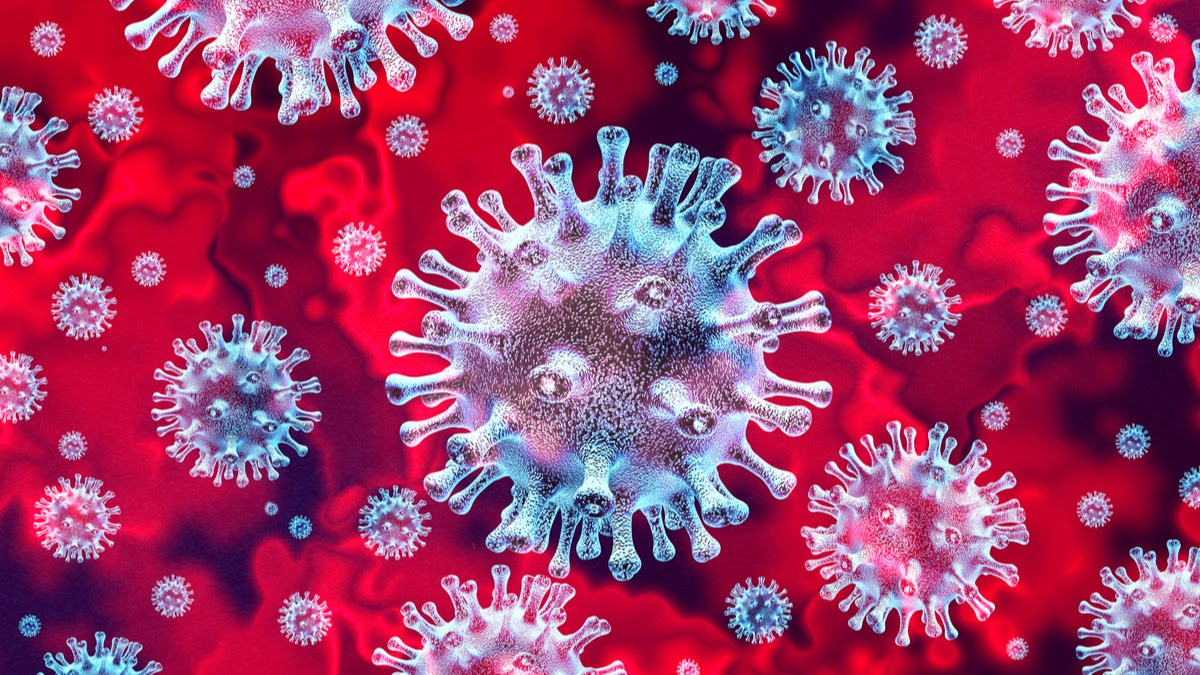Protect yourself and others, especially the most vulnerable. Help stop the spread of the coronavirus (COVID-19) by following common prevention tips. know more
- You will not be able to create a vaccine against COVID-19 at home
Developing the vaccine is a complex technical process that cannot be performed at home. The process involves thorough laboratory tests, followed by clinical experiments with thousands of volunteers. Vaccines need to be approved by doctors and specialized scientists in each country.
Source: World Health Organization - When used correctly, medical masks will not make you breathe an insufficient amount of oxygen or an excessive amount of carbon dioxide
. Medical masks (also known as surgical masks) are smooth or pleated masks that attach to your face with strips or rubber bands. Masks can be uncomfortable if worn for an extended period, but they will not make you breathe an insufficient amount of oxygen or an excessive amount of carbon dioxide.
Source: World Health Organization - Drinking alcohol is not effective for preventing or curing COVID-19
Drinking alcohol does not protect against COVID-19. Excessive consumption of alcoholic beverages can increase the risk of other health problems.
Source: World Health Organization - Drinking bleach or disinfectant is dangerous and is not effective in preventing COVID-19 Bleach
and other disinfectants are toxic products. Do not spray, drink or use these products on your body under any circumstances. They should only be used to carefully disinfect object surfaces.
Source: World Health Organization - Drinking methanol or ethanol is dangerous and is not effective for preventing or curing COVID-19
Methanol and ethanol are toxic substances. Ingesting them does not kill the COVID-19 virus in your body. Methanol and ethanol can cause serious injury or death. They can be found in cleaning products used for disinfecting surfaces.
Source: World Health Organization - Holding your breath is not a test for COVID-19
Being able to hold your breath for 10 seconds or more without coughing or feeling discomfort does not mean that you are free of COVID-19 or any other lung disease. The best way to confirm that you have the COVID-19 virus is through a clinical examination.
Source: World Health Organization - Eating garlic is not effective for preventing or curing COVID-19
Garlic is a healthy food that can kill some microbes, but there is no evidence that it offers protection against COVID-19. The best way to protect yourself from COVID-19 is to keep a safe distance from others and to wash your hands properly and frequently.
Source: World Health Organization - Young people can get COVID-19
People of all ages can be infected with the COVID-19 virus. Everyone, regardless of age, should take preventive measures, such as washing their hands regularly and keeping a safe distance from others.
Source: World Health Organization - Heat and humidity do not prevent the spread of COVID-19
You can contract COVID-19 regardless of whether the weather is hot and the day is sunny. Hot-climate countries have reported COVID-19 cases. The best way to protect yourself from COVID-19 is to keep a safe distance from others and to wash your hands properly and frequently.
Source: World Health Organization - Eating pepper is not effective for curing or preventing COVID-19
It may be nice to eat pepper, but it is not for curing or preventing COVID-19. The best way to protect yourself from COVID-19 is to keep a safe distance from others and to wash your hands properly and frequently.
Source: World Health Organization - Antibiotics are not for the treatment or prevention of COVID-19
Antibiotics are effective only against bacteria, not against viruses. COVID-19 is caused by a virus. COVID-19 patients may receive antibiotics to treat concomitant bacterial infections.
Source: World Health Organization - Vitamin and mineral supplements are not effective for the cure of COVID-19
Zinc, vitamins D, C and other supplements are not effective for the cure of COVID-19, although they are important for the proper functioning of the immune system and general health.
Source: World Health Organization - Hot baths do not help prevent COVID-19
Whatever the temperature of your shower or bathtub, your normal body temperature remains the same. Bathing in extremely hot water can cause burns. The best way to protect yourself from COVID-19 is to keep a safe distance from others and to wash your hands properly and frequently.
Source: World Health Organization - Cold and snow do not help in the prevention of COVID-19
The cold climate does not help in the cure, treatment or prevention of the spread of COVID-19. The best way to protect yourself from COVID-19 is to keep a safe distance from others and to wash your hands properly and frequently.
Source: World Health Organization - Pneumonia vaccines are not effective in preventing COVID-19
The COVID-19 virus is so new and different that it needs its own vaccine. However, existing vaccines are highly recommended for you to protect yourself from pneumonia.
Source: World Health Organization - Hand dryers do not help prevent COVID-19
Hand dryers do not kill the coronavirus, the virus that causes COVID-19. To protect yourself against COVID-19, wash your hands often with soap and water or disinfect them with gel alcohol. Dry your hands thoroughly with paper towels or a hot air dryer.
Source: World Health Organization - Regularly flushing your nose with saline does not help prevent COVID-19
There is no evidence that regular flushing with saline provides protection against COVID-19 or other respiratory infections. There is limited evidence that this can contribute to a faster recovery from a cold.
Source: World Health Organization - Ultraviolet lamps should not be used to prevent or cure COVID-19
UV lamps should not be used to disinfect the skin or hands. They can cause skin irritation and eye damage. Washing your hands with soap and water or disinfecting them with gel alcohol are the most effective ways to eliminate the COVID-19 virus.
Source: World Health Organization - COVID-19 is not transmitted by mosquito bite
There is no evidence that COVID-19 can be transmitted by mosquito bite. The transmission of COVID-19 occurs mainly through droplets produced when an infected person coughs, sneezes or speaks. Transmission can also occur if you touch an infected surface and then put your hand over your eyes, nose or mouth. To protect yourself, wash your hands frequently and disinfect surfaces of frequent contact at home.
Source: World Health Organization - Flies do not transmit COVID-19
There is no evidence that COVID-19 can be transmitted by flies. The transmission of COVID-19 occurs mainly through droplets produced when an infected person coughs, sneezes or speaks. Transmission can also occur if you touch an infected surface and then put your hand over your eyes, nose or mouth. To protect yourself, wash your hands frequently and disinfect surfaces of frequent contact at home.
Source: World Health Organization - 5G mobile networks do not transmit COVID-19
Viruses, including the one that causes COVID-19, cannot travel over radio waves or mobile networks. COVID-19 is spreading in many countries that do not have 5G mobile networks.
Source: World Health Organization - Shoes are very unlikely to transmit COVID-19
The likelihood of COVID-19 being transmitted by shoes is very low. As an extra safety measure, it is recommended to leave your shoes at the entrance to the house, especially if there are babies or young children playing on the floor. This will prevent contact with dirt or residue from the soles of the shoes.
Source: World Health Organization - COVID-19 is caused by a virus, not bacteria
The virus that causes COVID-19 belongs to the family of coronaviruses. Antibiotics are not effective against viruses. Some people with COVID-19 also develop a bacterial infection at the same time. In that case, the doctor may prescribe antibiotics.
Source: World Health Organization - Most people recover from COVID-19
Most people who get COVID-19 have mild or moderate symptoms and are able to recover with medical assistance. If you experience symptoms such as cough, fever or difficulty breathing, seek medical attention. Talk to a doctor over the phone before heading to a clinic or hospital. If you have a fever and live in a region with dengue or malaria, call a doctor immediately.
Source: World Health Organization - Temperature gauges detect fever, not COVID-19
Temperature gauges can detect whether a person has a fever, which can be caused by COVID-19. However, not everyone who gets COVID-19 has a fever. Temperature gauges are also not able to detect people who are infected, but who still do not have a fever. This is because it takes 2 to 10 days for people infected with COVID-19 to have a fever.
Source: World Health Organization - The elderly are not the only ones who are at risk from contracting COVID-19
People of all ages can be infected with the COVID-19 virus. People aged 60 and over and suffering from conditions such as asthma, diabetes and heart disease are at increased risk of becoming seriously ill. Everyone should practice preventive measures, such as washing their hands regularly and keeping a safe distance from others.
Source: World Health Organization - There is no evidence that hydroxychloroquine is effective to cure or treat COVID-19
Hydroxychloroquine and chloroquine are used as treatments for malaria and other diseases. They have been studied as possible treatments for COVID-19, but current data shows that they do not reduce the number of deaths from COVID-19 or help people with moderate disease. Hydroxychloroquine and chloroquine can treat malaria and autoimmune diseases. However, its use for other diseases or without medical supervision can cause serious side effects and should be avoided.
Source: World Health Organization


